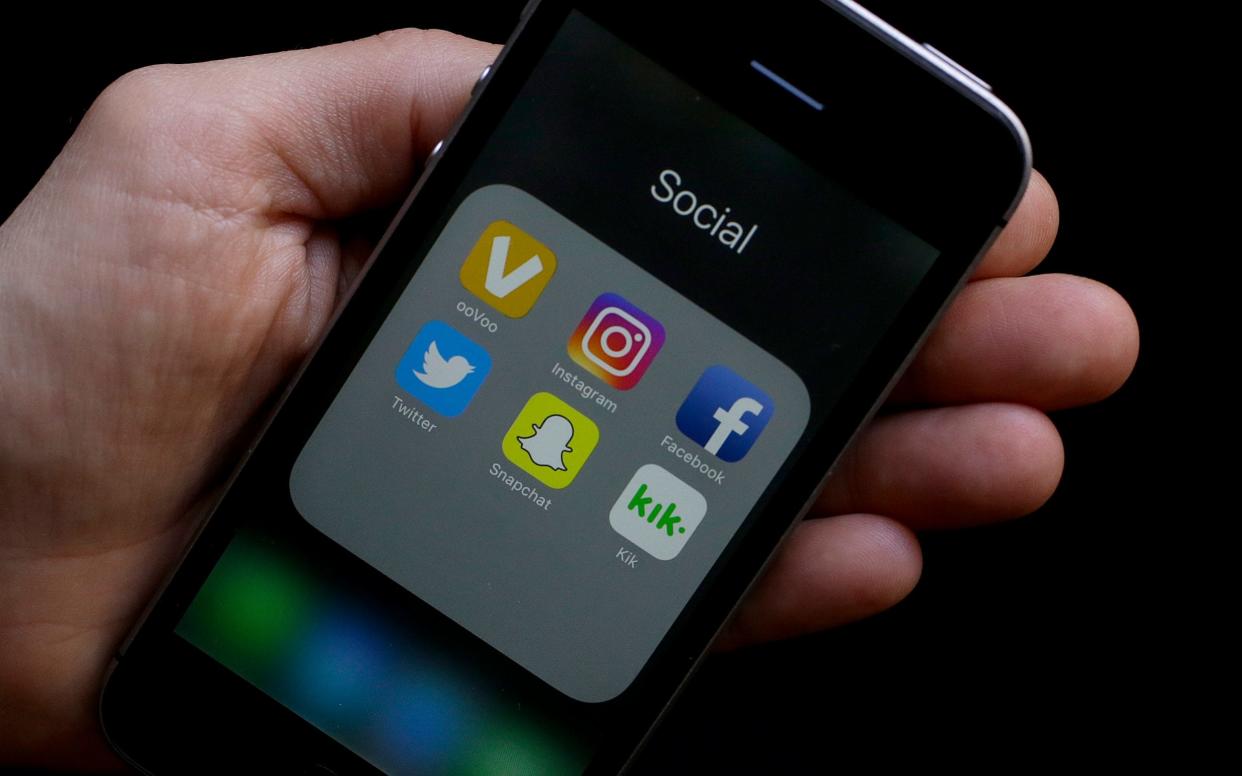Women more likely to quit social media during 'scroll-free September', says Royal Society

Women make up the majority of the 300,000 people planning to quit "toxic" social media during "scroll-free September", the Royal Society for Public Health has announced.
The organisation, which has masterminded the NHS-backed campaign, said that three times more women than men were set to take part because social media leaves women feeling inadequate and with low self-esteem from being bombarded with perfect body images on platforms like Instagram.
Other experts blamed the chauvinism and trolling of women on networks such as Twitter for the disproportionate desire by women to give social media a break.
At least 300,000 Britons – about 12 per cent of those who have heard about the campaign - are expected to take part in scroll-free September which starts tomorrow (Sat) and invites people to give up or cut back usage of sites including Facebook, Twitter and Instagram, RSPH polls show.
Of those who said they would take part, three quarters are women.
Most likely to quit are 25-34 year olds (34 per cent), followed by 18-24 year olds (16 per cent) against under 10 per cent among older age groups.
RSPH spokesman Ed Morrow said: “Image-heavy social media platforms like Instagram can be a particularly toxic environment for young women who are often left with feelings of inadequacy and low self-esteem from the barrage of images of unattainable body image ideals that tend to flood such platforms.”
Its research has suggested as many as nine out of 10 teenage girls are unhappy with their bodies, while a UCL study found girls who spent longer online were more likely to suffer depression than boys who tended to be video gaming rather than on social media.
“This is a problem that has been fuelled by TV and magazines for years, but social media makes it all the more inescapable,” said Mr Morrow. “Women also tend to be more open to discussing mental health issues than men.”
Tanya Goodin, a tech detox expert and author of Stop Staring at Screens, said Twitter could be a “hostile” environment where “there’s a definite issue around women being targets for trolls.”
According to the RSPH poll, more than a third (34 per cent) of the public believe quitting for a month would have a positive impact on them, rising to almost two thirds (63 per cent) of 18-24 year olds.
Claire Murdoch, NHS England’s national director for mental health, said the campaign was right to highlight growing concerns that social media is contributing to mental ill health in young people.
“We need to see concerted action with everyone taking responsibility including social media giants, so the NHS is not left to pickup the pieces of a mental health epidemic in the next generation,” she said.
The campaign coincides with one of the biggest-ever studies into the impact of new media. It found teenagers who were heavy users of social media were twice as likely to be unhappy as those who spent more time talking with friends face to face, exercising and doing their homework.
About a fifth (20.3 per cent) of those who spent more than 40 hours a week on social media or gaming were rated unhappy based on wellbeing questionnaires compared to 12 per cent of those who limited their online activity to just three to five hours a week.
The study which tracked 1.1m US students aged 13 to 18 over 25 years also found 16 per cent of those who spent no time on social media were unhappy, confirming previous research that some time online is beneficial but declines for every additional hour.
The research, led by Dr Jean Twenge from San Diego State University, found a dramatic decline in teenagers’ happiness and wellbeing from 2012, a point when smartphones started to saturate the teenage market with ownership doubling from 37 per cent to nearly 80 per cent.

